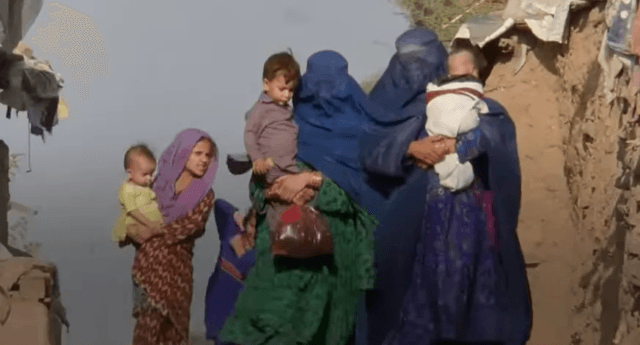New Delhi, Jul 12: As deportations from Iran surge, the ruling Taliban caretaker government urged Afghan citizens and the private sector to step in and support the tens of thousands of returnees arriving daily through the Islam Qala border crossing. According to TOLO News, Deputy Spokesperson of the government, HamdullahFitrat, during a visit to the area, appealed to traders and wealthy individuals to provide essential aid, including food, water, and transport.
Local authorities report that nearly half a million Afghans have returned through Islam Qala in just the past 20 days, with 20,000 to 30,000 crossing each day. Many returnees, despite recounting difficult conditions in Iran, expressed relief at returning home and called on the caretaker government to offer employment and support for reintegration. The peak came just days before a July 7 deadline set by Iranian authorities for undocumented Afghans to leave the country. The International Organisation for Migration (IOM) also said that over half a million Afghans have crossed the Iranian-Afghan border between June 24 and July 9, marking one of the largest surges in returnees in recent years.
The abrupt rise is linked to Iran’s intensifying deportation campaign targeting undocumented Afghan migrants, particularly in the wake of its brief conflict with Israel, several media outlets reported. Iran’s crackdown, which began in March, gained momentum after unverified claims surfaced accusing Afghan nationals of espionage on behalf of Israel. Critics argue that the narrative has been used to justify the longstanding objective of reducing Iran’s undocumented Afghan population and to redirect public frustration onto a vulnerable minority.
Media reported that aid workers report that reception centres are overwhelmed, with thousands waiting for assistance without adequate shelter, water, or medical care. Many of the deportees had been living in Iran for years, some in semi-permanent housing, now suddenly uprooted. Among the returnees are hundreds of unaccompanied minors and families who report harsh treatment during detention. Migrants say they were held in overcrowded centres without food or water and subjected to extortion and abuse. Others say they were forced to leave despite holding some form of documentation or having applied for legal residency.
The Iranian government has framed the expulsions as a matter of national security, despite growing international concern. United Nations officials warn that Afghanistan is ill-equipped to absorb the influx. With more than 1.6 million refugees already returned from Iran and Pakistan this year, humanitarian agencies estimate that the number could reach 3 million by the end of 2025, according to international media reports.
Meanwhile, Afghanistan’s internal conditions remain dire. The country is battling its worst drought in decades, with more than 70% of its population living at or below subsistence level. The human rights situation continues to deteriorate, particularly for women and girls, as restrictions on education and movement intensify under Taliban rule. Relief agencies say they are racing against time to provide food, shelter, and support to the newly displaced, but warn that resources are strained. Without coordinated international aid and regional cooperation, the return of such large numbers could deepen Afghanistan’s humanitarian crisis even further.








